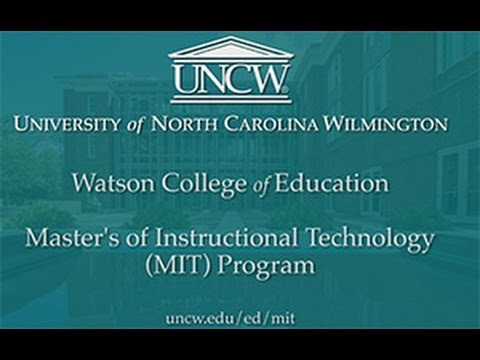Defined as the theory and practice of design, development, utilization, management and evaluation of the processes and resources for learning, we believe that Instructional Technology is much more than hardware and computer software development. It is a powerful tool to improve educational and training systems in organizational settings, school systems, and universities through the application of research and best practices from instructional technology.
Instructional Technologies also encompasses the instructional design process, which includes analysis, design, development, evaluation, and implementation of instructional systems and other learning environments. Some of the many related areas of study include educational psychology, organizational development, communications, message design, multimedia development, electronic distance education, management and consultation, technical writing, and information systems design.
Our graduates typically assume design/development roles in public or private organizations—both in education and corporate organizations.









